Huw Hughes
London - Whether it’s to predict upcoming trends or to keep up with the latest technical innovations, it seems like the fashion industry always has its eyes on the future. That forward-looking nature of the industry was clearly apparent at this season’s Pure London. “The key thing is for us all to all talk about how we can drive towards a more sustainable fashion future," Julie Driscoll, the managing director of Pure told FashionUnited. “We need to empathetically move forward as an industry.” But what does that mean? Well, FashionUnited took a look around Pure to see how the show was gearing up for the future.
‘Sustainability is absolutely the future of fashion’
Does sustainability have a place in fashion? A compelling question, perhaps, in the early 2000s, but for today's fashion industry it is undoubtedly a given. Normad Tribe was one of several brands making up the Conscious section of the trade fair - an area introduced last season for ethical and sustainable brands. “Sustainability is absolutely the future of fashion,” Joanis Duran, director of operations and sales told FashionUnited. “It’s the consumer who is the one demanding sustainability. The whole country is demanding sustainability. Generation Z, Generation Y - they’re no longer buying to buy; they want to know what’s going on. Everyone is more educated and demanding better.”
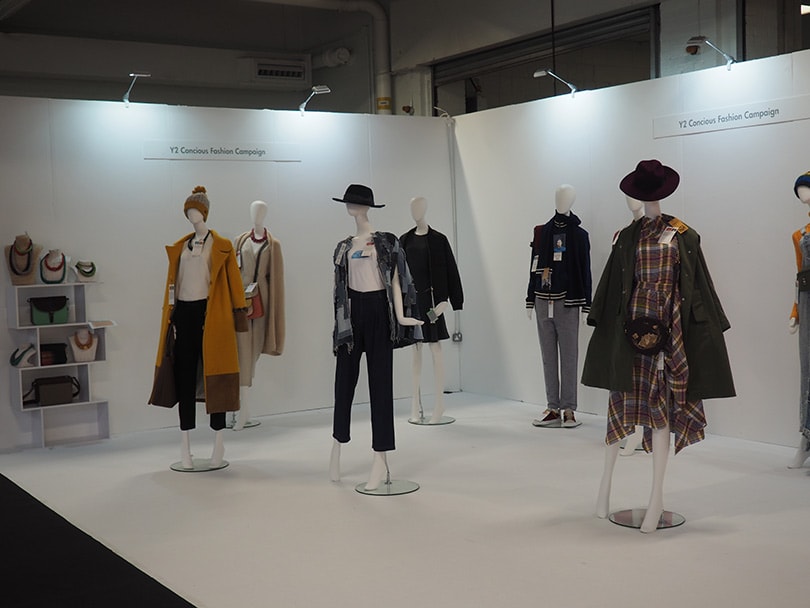
But the conversation of sustainability and ethics wasn’t restricted to the Conscious section at Pure, it was also firmly on the main stage of the trade fair. MP Mary Creagh took to the stage on Tuesday to discuss the future of sustainability in the UK fashion industry. Also acting as chair of Parliament’s Environmental Audit Committee (EAC), a committee who in January crticised leading UK fast-fashion companies for “failing to commit to reduce environmental impact”, Creagh didn’t pull any punches.
The future is ethical
“We know a lot about the lives of the pigs we eat - you can see if they’re outdoor reared, what their diet is - because all of that is controlled, but you can’t tell me about the life of the women - mostly women - making your clothes,” Creagh said on the main stage. But what is the government doing, and what legislation can be put in place to ensure high ethical standards are met? Creagh believes the government is starting to wake up to the issue, with the ‘Resources and waste strategy for England’ being introduced just before Christmas - a policy which sets out how we will better preserve material resources by minimising waste, promoting resource efficiency and move towards a circular economy.
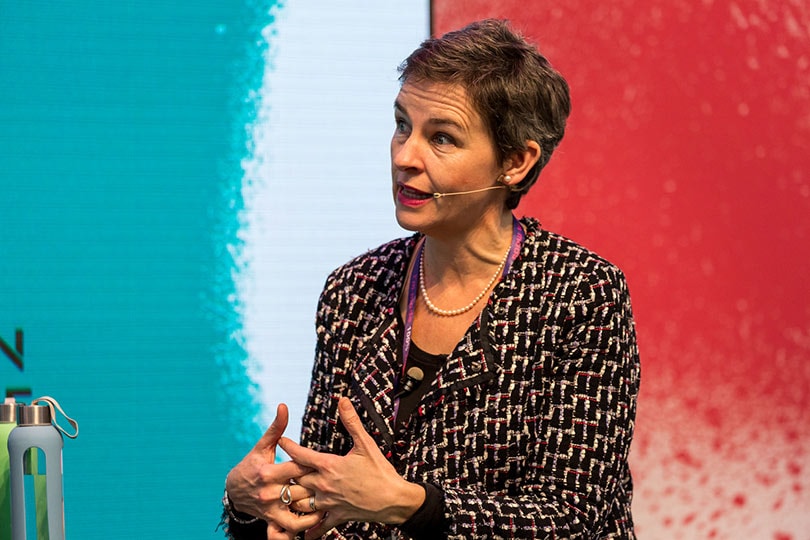
“When you’ve got scientists telling us we’ve got twelve years to tackle damaging climate change, then the clock is really ticking,” Creagh said. The phrase ‘net zero emissions fashion industry’ was thrown around a lot at Pure, but what does that future actually look like? Well, according to Creagh, it involves “a lot more sustainable cotton, fibre to fibre recycling, designing for recyclability, full transparency in the supply chain, right down to tier four, and making sure children aren’t involved in making your clothes”.
When pressed on the issue of the government tip-toeing around making laws to drive sustainability, Creagh said that the chances of of the laws changing were high. Convincing? It's difficult to say. But one thing is clear: to ignore sustainability is no longer a slap-on-the-wrist offense, it is a blasant rejection of ethical standards. On Monday evening, fashion designer and activist Katharine Hamnett blasted Western governments and Western companies on Pure’s main stage, describing them as “complicit right the way down the line” with the “devastating and heartbreaking” conditions of millions of farmers living in poverty.
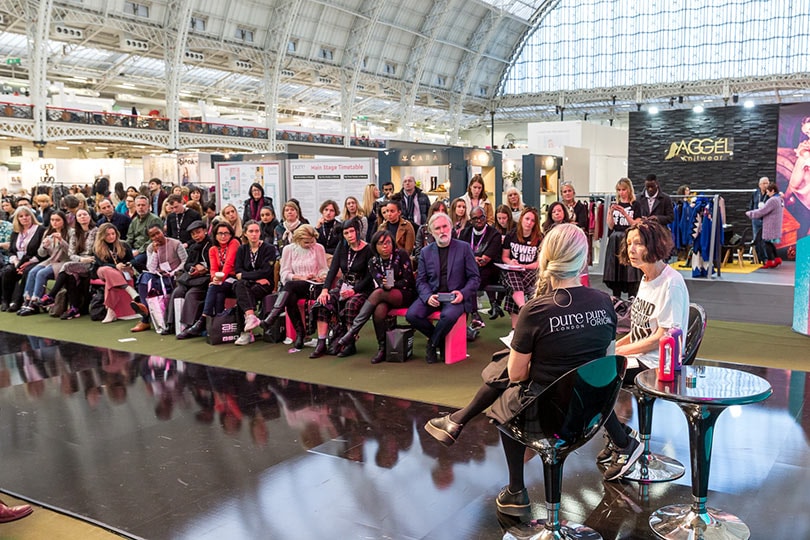
The growing role of AI and personalisation
Retail, a sector marred by shop closures and falling footfall, and one that just suffered its worst Christmas in 10 years, was also a hot topic at Pure. “We’re encouraging retailers to make more informed decisions about where trends are coming from,” Grace Hill, director of retail strategy at analytics firm Edited told FashionUnited. Edited uses AI driven data to inform retailers of upcoming trends and monitor stock movements to ensure retailers have the right amount of a product at the right time.
But in a time where budgets are tighter than ever, is AI technology a risky investment? Well, Hill didn’t seem to think so: “Invest in data-driven technology is probably the less risky thing to do because it makes things more efficient. So many decisions in retail at the moment are based on gut instinct and can lead to overbuying or underbuying. Embracing data and making informed, smart decisions is the way forward.” It certainly seems that retailers in the UK are heeding that advice. A study this year by the Capgemini Research Institute found that AI is being used by over a quarter (28 percent) of UK retailers today, jumping up from 17 percent in 2017, and 4 percent in 2016. Capgemini predict that AI technology could save retailers as much as 300 billion dollars (235 billion pounds).
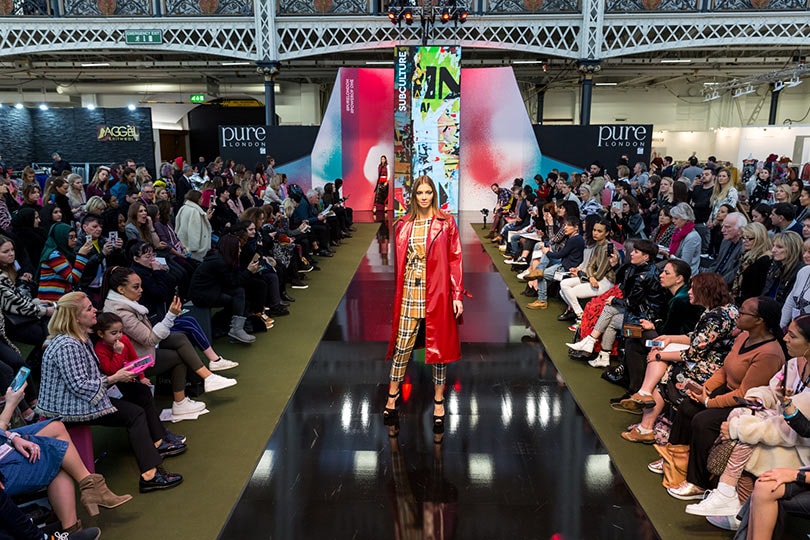
French tech company Lectra was also at Pure, showing off the ways tech can optimise the production process. The company’s end-to-end personalization solution automates production, from order reception to defining personalization options, nesting and cutting. By creating samples digitally and sharing them through the cloud, the time of the process is drastically cut down. According to Jean-Patrice Gros, UK & NE managing director at Lectra, this type of personalisation is the future of the fashion industry. “With this technology, the time to process the order is cut down from two hours and 45 minutes, to just 12 seconds,” Gros told FashionUnited. “The order could be cut in London, in Bangladesh, in China - the time is the same. Our goal is to cut down the barriers of the existing supply chain.”
The future of the influencer
On Monday, futurist and designer Geraldine Wharry took to the main stage of Pure to speak about the growing role of the fashion influencer, and how it will change in the future. One of the key points she was quick to cover was the changing roles of gender. “I think what we’re going to see in the future is gender democracy becoming ubiquitous,” she said in her talk, highlighting the way that the LGBT community is currently viewed as the new “beautiful people” who fashion brands are fighting to work with. Body positivity will also become increasingly popular, according to Wharry, who cited France’s decision to ban photoshopping of models on magazines, and more recently Getty Images’ decision to ban images in all international markets that slim models down.
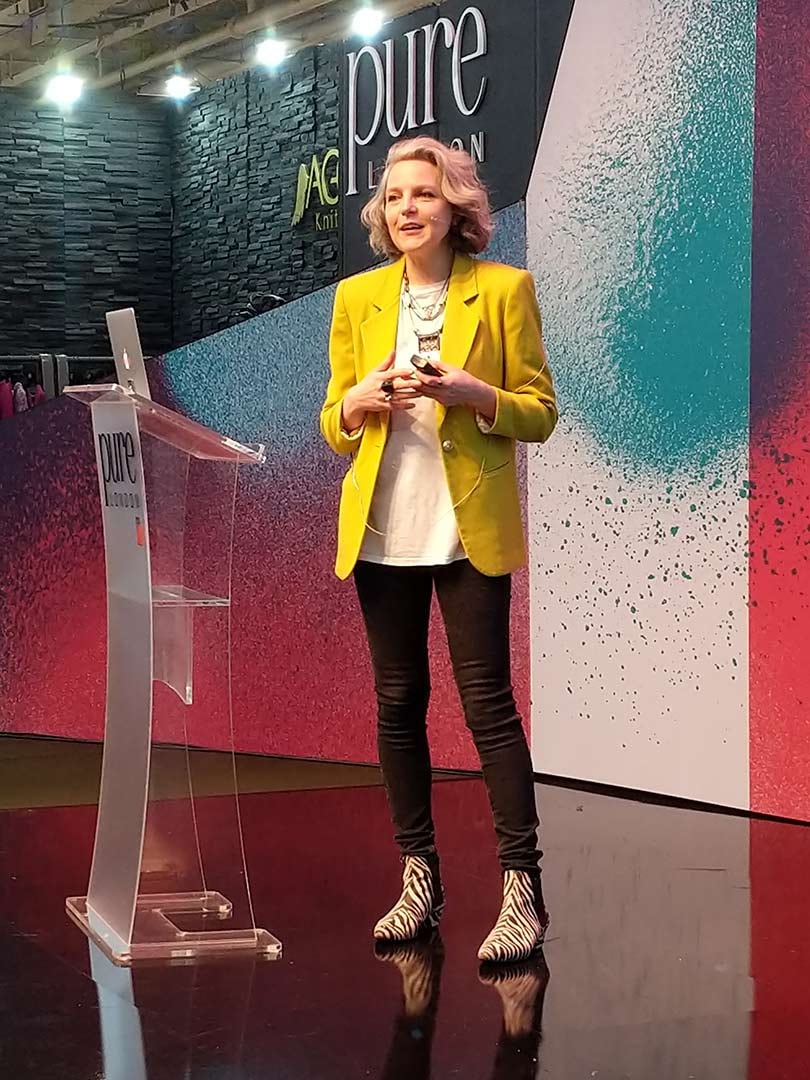
Wharry says that this shift will also begin to embrace people with different abilities. “15 percent of the world's population is physically or mentally disabled,’ Wharry cited. “Zappos adaptive and Tommy Hilfiger are big names embracing this, coming out with ranges that are specifically designed for the challenges someone might face in a wheelchair, for example.” AI influencers are also here to stay, Wharry said. Last year, Miquela, an AI influencer collaborating with Prada for Milan Fashion Week, took the world by storm, and as AI develops, so will the presence of these types of influencers. Wharry added: “We are at a crossroads of defining advertising and redefining design through the solution of virtual reality."
